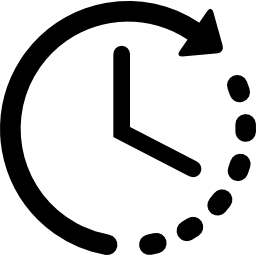NO to Massive Cuts in Addiction Support and Prevention: Petition with Nearly 10,000 Signatures Submitted
16.09.2025 | from Addiction Switzerland
 Reading time: 4 minutes
Reading time: 4 minutes
16.09.2025, The savings measures decided by the Federal Council and Parliament lead to massive cuts in addiction support and prevention. Given the increasing challenges, these decisions are irresponsible. Any reduction in the addiction sector exacerbates the problems and leads to costs that will far exceed the 'savings'. Addiction specialist organisations in Switzerland have therefore submitted a petition with 9,152 signatures against cuts in the addiction sector today. The civilian population and many affected people are advocating for strong addiction prevention and support.
Today in Switzerland, an estimated 250,000 people live with alcohol dependence, several hundred thousand people are dependent on cigarettes and other nicotine products, and several tens of thousands use illegal drugs daily. Substance use causes more than 11,000 preventable deaths annually in Switzerland. Around 300,000 people have problems due to gambling. Addiction diseases cause economic and social damage in Switzerland of approximately 8 billion francs per year.
Reduction in spending means increased costs: Prevention and addiction support demonstrably reduce suffering and costs. According to a study, every franc invested in prevention saves 23 francs in indirect costs in the alcohol sector, and even 41 francs in the tobacco sector (Jeanrenaud, 2010). Nevertheless, it was decided to cut a quarter of the budget for addiction and non-communicable diseases (NCDs), and further cuts are expected in the coming years. Additionally, federally subsidised prevention projects by specialist organisations will, in most cases, only be funded half as much as before. Lacking alternative financing might spell the end for many successful projects like Dry January or the Alcohol Action Day. This will inevitably lead to more addiction issues, more suffering for those affected and their relatives, and higher economic costs, with the reduced amount being exceeded manifold.
Due to the cuts, monitoring is also to be drastically reduced and interrupted in the sector of gambling and chance. This results in a lack of vital information in the addiction sector about the extent of problems and the emergence of new addiction phenomena. Addiction prevention and support thus become a blind flight, further limiting possibilities and depriving us of a warning system for new developments.
Crack crisis, fentanyl threat, and further challenges - act now: Generally, mental health among youth is deteriorating, consumption prevalences are stagnating or even increasing depending on the substance and age, and new - legal and illegal - products are constantly coming onto the market. Behavioural addictions also show increasing problem loads, reinforced by digital applications, which are more frequently designed to create the highest possible dependency potential.
Furthermore, cities and addiction specialists are confronted with the crack crisis, a challenge that hasn't existed for thirty years. In addition, the possible threat to Switzerland from synthetic opioids (fentanyl and others) is growing. To address these developments, a forward-looking addiction strategy and the corresponding financial resources are needed. Cutting in this field means losing control and shifting the consequences to those affected and the entire society.
To tackle the current challenges, a strategic vision and a federally driven addiction policy goal are equally needed. In the 1990s, when Switzerland went through a severe crisis related to heroin consumption, the Federal Council and the administration engaged and, alongside local professionals, researchers, cantons, and cities, sought solutions. This coordinated approach led to the development of the four-pillar policy and helped manage the crisis.
Widespread support for the petition shows that addiction work needs to be strengthened. With nearly 10,000 signatures from civil society, including many affected individuals, the petition demonstrates the urgency of the concern. This is the worst possible time for cuts in addiction support and prevention. On the contrary, we need to strengthen the National Addiction Strategy and increase the resources allocated to combating addiction and supporting those affected. Only then can further suffering and even greater costs be prevented.
Press contact:
Facia Marta Gamez
Co-Secretary-General of the Addiction Professional Association
martagamez@fachverbandsucht.ch
076 830 20 65
Markus Meury
Media Spokesperson, Addiction Switzerland Foundation
mmeury@suchtschweiz.ch
021 321 29 63
Editor's note: Image rights belong to the respective publisher.
Conclusion of this article: « NO to Massive Cuts in Addiction Support and Prevention: Petition with Nearly 10,000 Signatures Submitted »
Addiction Switzerland
Addiction Switzerland aims to prevent or reduce problems related to the consumption of psychoactive substances and behaviours with addiction potential.
We promote societal debate in the addiction sector. We develop and disseminate scientific knowledge that allows understanding, preventing, and appropriately addressing the underlying problems. We advocate for effective measures and political frameworks to reduce problems.
We engage in creating an environment that facilitates a healthy lifestyle and strengthens individual health competencies. In doing so, we combine addiction prevention and health promotion measures.
We support all those with particular risks - children and young people, as well as people in critical life phases. We assist affected individuals and their relatives by providing information, advice, or financial aid.
Note: The "About Us" text is taken from public sources or from the company profile on HELP.ch.
Source: Addiction Switzerland, Press release
Original article published on: NEIN zu massiven Kürzungen in der Suchthilfe und -prävention: Petition mit fast 10'000 Unterschriften eingereicht



